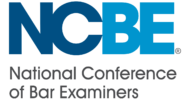Connecticut Must have a JD from an ABA-approved or Committee-approved law school. Foreign law school graduates must submit a petition for determination on foreign education and receive Bar Examining Committee approval prior to submitting an application for admission by examination, admission without examination, or admission by UBE score transfer. The foreign education must be substantially equivalent in duration to the legal education provided by an ABA-approved law school. Foreign-educated applicants must complete an LLM degree program meeting specific requirements at an ABA- or Committee-approved law school prior to admission. An applicant who otherwise does not meet the education requirements may be eligible to sit for the exam if they meet certain conditions. Conditions include admission before the highest court of original jurisdiction in a US state, the District of Columbia, the Commonwealth of Puerto Rico, or a US District Court for 10 or more years, good standing in such jurisdiction, and active practice of law in that jurisdiction for 5 of the last 7 years.
District of Columbia Foreign law school graduates must have been a member in good standing for 3 years of a court of general jurisdiction of any US state or territory.
Indiana Effective January 1, 2009, graduation from an ABA-accredited law school is no longer required of applicants for a Business Counsel License. Graduation from an ABA-accredited law school is still required of applicants for a Provisional License.
Iowa Foreign law school graduates must have been engaged in qualified, full-time practice of law under license of the US jurisdiction for at least 5 of the last 7 years.
Maine If the applicant graduated from a law school in the United States, that law school must be ABA-approved. Applicants who graduated from law schools in other English-speaking common-law countries may be eligible if they pursued a course of study substantially equivalent to that of a law school approved by the ABA. Foreign law school graduates must satisfy requirements of Regulation for Determining Equivalency of Foreign Legal Education and have practiced for 3 years in the jurisdiction where licensed.
Massachusetts Must be an ABA-approved law school or a law school authorized by statute of the Commonwealth of Massachusetts to grant the degree of bachelor of laws or JD at the time of graduation. The Board in its discretion may excuse applicants possessing degrees from law schools in foreign countries, providing they have met the following requirements: a) obtained prior Board approval of their educational sufficiency and work history, b) provided verification that they have been admitted and are in good standing in another state, district, or territory of the United States and have engaged in the practice of law for 5 out of the past 7 years before making application, c) passed the MPRE, and d) satisfied the Board as to their moral character and fitness.
Michigan Applicant must have a JD from a reputable and qualified law school. Law schools fully or provisionally approved by the ABA on the date the applicant’s degree is conferred are considered to be reputable and qualified.
Minnesota An applicant who has been admitted for more than 10 years in another jurisdiction may apply on motion without a JD from an ABA-approved law school.
Mississippi Applicant must have a JD from an ABA-approved law school unless applicant comes from a reciprocal jurisdiction that does not require it of Mississippi attorneys.
New Hampshire Foreign law school graduates who meet other requirements and who are licensed in another state are eligible for admission on motion. Graduates of 1 non-ABA-approved school in Massachusetts are also eligible.
North Carolina The applicant must meet the requirements set out in at least one of the following paragraphs: (1) hold an LLB or JD degree from a law school approved by the ABA at the time the degree was conferred; (2) have received prior to August 1995 an LLB, JD, LLM, or SJD degree from a law school approved by the council of the North Carolina State Bar at the time the degree was conferred; (3) have received prior to August 2005 an LLM or SJD degree from a law school that was approved by the ABA at the time the degree was conferred; or (4) hold an LLB or JD degree from a law school that was approved for licensure purposes in another state of the United States or the District of Columbia and be licensed in such state or District. The applicant must also satisfy all requirements outlined in Section .0502, “Requirements for Comity Applicants,” of the Rules Governing the Admission to Practice Law in North Carolina.
New Mexico Graduates of foreign and non-ABA law schools, including correspondence and online law schools, may write the examination, transfer an eligible Uniform Bar Examination (UBE) score, or apply for admission without examination if they are licensed and in good standing in another US state and have engaged in the active practice of law in the state where admitted for 4 of the 6 years prior to application to sit for the examination or transfer the UBE score or 5 of the 7 years prior to application for admission without examination.
Ohio If an applicant’s legal education was not received in the United States, the education must be evaluated and approved by the Supreme Court as equivalent to ABA-approved law school education. For equivalency, an applicant must show successful completion of 30 credit hours at an ABA-approved law school in addition to a foreign law degree showing at least 3 years of full-time study. The application for admission without examination may not be processed until the education is approved. At least 3 additional years of full-time post-secondary education are required.
Texas Foreign-trained applicants who satisfy exceptions to the law study requirement based on licensed practice experience and/or completion of a qualified LLM degree at an approved US law school may be eligible for admission without examination.
Vermont Foreign law school graduates and graduates from non-ABA-approved US law schools can be admitted without examination if they meet the standard requirements for admission without examination.
Virginia An applicant must have received either (i) a JD from a law school that was approved by the ABA at the time of an applicant’s graduation, or (ii) a JD from a law school not approved by the ABA at the time of an applicant’s graduation (including a JD from a foreign law school), and an LLM from a law school approved by the ABA at the time of an applicant’s graduation, and passed a bar exam in a state or territory of the US, or the District of Columbia.
West Virginia Must be ABA-approved or its equivalent.
Wisconsin Foreign law school graduates are eligible for admission without examination if eligible for admission on proof of practice elsewhere,
having first been admitted to a reciprocal US jurisdiction.


